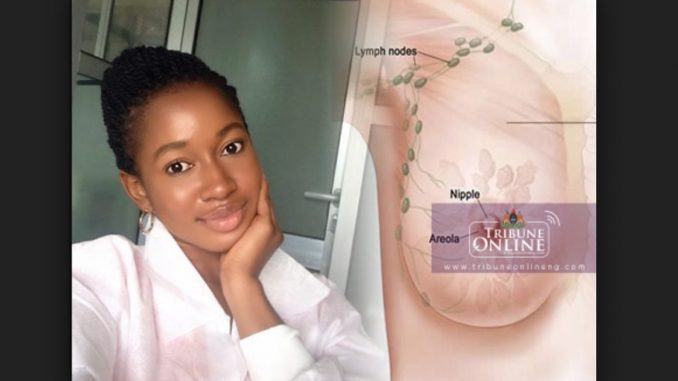
A Sierra Leonean woman, Sandra Musujusu, is on the cusp of something big.
A Sierra Leonean woman is on the cusp of something big. Sandra Musujusu, a student at the African University of Science and Technology in Abuja, Nigeria is reported to be developing an alternative treatment for a type of breast cancer that mainly affects women of African ancestry. The Nigerian Tribune reports that the development was publicised when the World Bank Education Director, Dr Jaime Saavedra Chanduvi and his team visited the University on a tour of the 10 African Centres of Excellence. Musujusu’s research is under the Pan African Materials Institute (PAMI) which is an African Center of Excellence of the African University of Science and Technology (AUST) funded by the Nigerian government through a credit from the World Bank.
A Cure for African Women
Speaking to the Nigerian Tribune, Musujusu said, “My research is actually centered on the development of biodegradable polymers for treatment of breast cancer. I will be focusing on triple negative breast cancer, which is actually the aggressive subtype of breast cancer that is common with women from African ancestry.”
In Africa, breast cancer is responsible for one in four diagnosed cancers and one in five cancer deaths. According to Vanderpuye et al in a review titled An update on the management of breast cancer in Africa, “The breast cancer incidence in Africa continues to increase and is projected to double by 2050.” The review also highlighted that there was a higher incidence of triple negative cancer which Musujusu is on the verge of dealing with.
Empowered women empower each other
Musujusu benefitted from the PAMI initiative which is a part of the World Bank’s $10 billion commitment top encourage cutting edge research and develop solutions to problems being faced in the continent. She is a classic example of what happens when African women are empowered in society and she acknowledged the same when she said, “I believe there is a bright future for Africa, and as a woman there is much more we can do if we are empowered. This award given to me by PAMI has empowered me to face my studies with more confidence and actually contribute to the frontier of knowledge and move Africa forward.”
Her work is not only good news for Africans but every black woman in the world. The Susan G Komen Organisation reports that in the United States alone, black women with breast cancer have the highest mortality rate of any race and breast cancer is the second leading cause of cancer death among black women. Musujusu’s work will therefore transcend borders and impact lives through-out the globe. It is the best kind of empowerment: to empower your people to live.
Developments such as this will propel the world towards finding lasting solutions to a disease that is claiming a lot of lives. It is commendable that Musujusu has placed Africa in the heart of the discussion. In 2016, scientists in South Africa found a link between a particular type of malaria resistance and the likelihood of cancer spread in some patients of African descent. Geoffrey Siwo, one of the research scientists behind the findings said, “We are attempting to find long term solutions, new ways of addressing and treating cancer, TB, AIDS, HIV – these answers can only be found through the engagement of young scientists in Africa.”
By: Tatenda Gwaambuka

Where can one get the drugs. And at what range. Thanks.
In Nigeria?
Nigeria is fond of frustrating projects like this.
May the Lord help us, Amen.